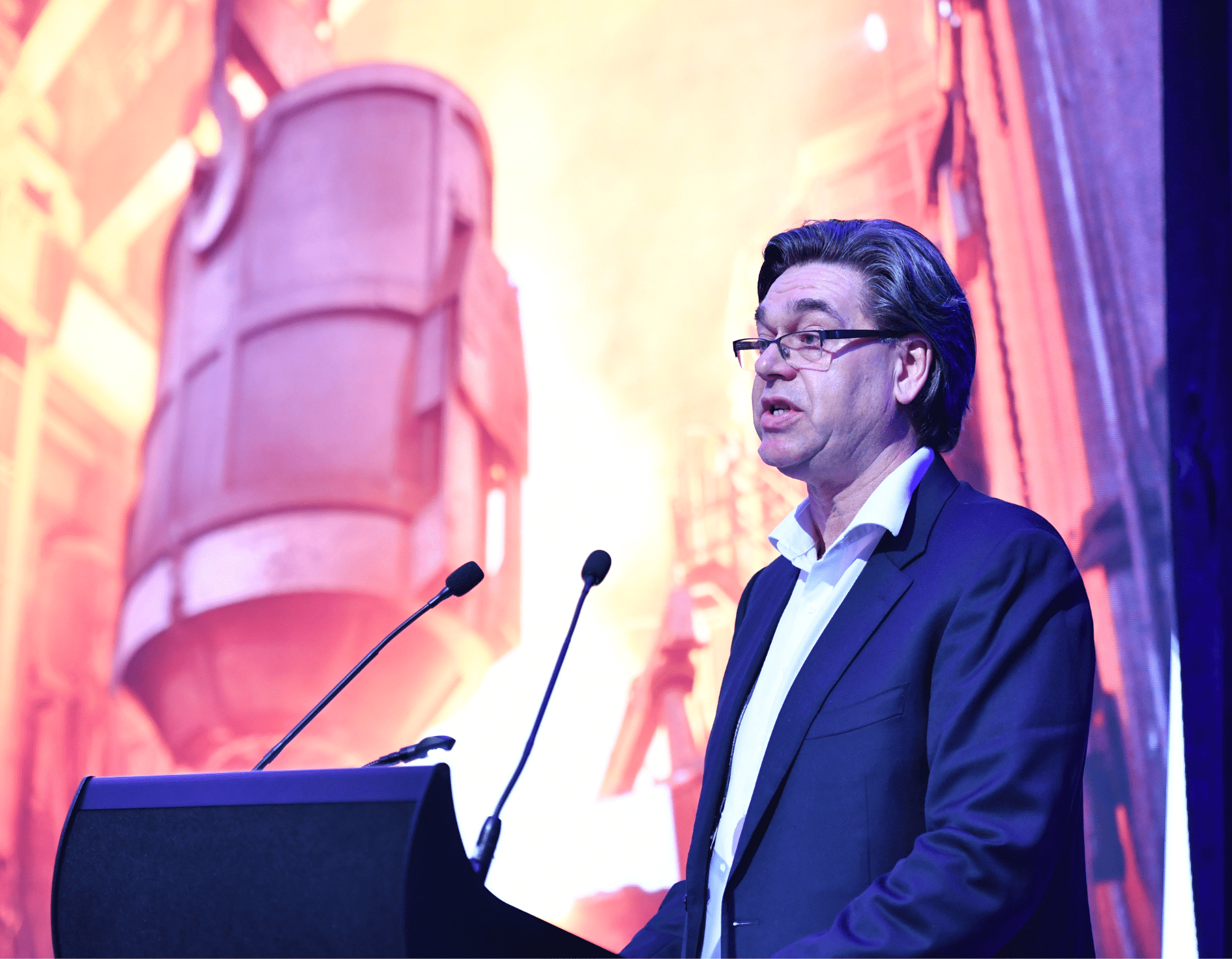
As a founding member of the Australian Steel Institute (ASI) and major sponsor of the 2022 Australian Steel Convention, InfraBuild played a key role during the Sydney event on 10 and 11 October.
Delegates from across the industry attended the 2022 convention, the first held since 2019, following the pandemic.
Our Executive General Manager Manufacturing, Shane Murphy, headlined InfraBuild’s team at the convention, delivering a keynote address on our path to decarbonisation and the importance of sovereignty of supply in helping the industry achieve its sustainability objectives.
Decarbonisation
In his address, Shane acknowledged the growing global conversation around the decarbonisation of the steel industry and pointed to our ‘building futures through sustainable steel’ mission as proof of our commitment to the cause.
He outlined work being done by InfraBuild to map its decarbonisation journey and the initiatives we are exploring to meet our Carbon Neutral 2030 (CN30) ambition.
“Decarbonisation cannot happen overnight, but it must happen. And we firmly believe we can achieve our ambition of carbon neutrality by 2030,” Shane said.
“Built environments account for 25 percent of global emissions. And now, more than ever, the market is looking to manufacturers to enhance the sustainability credentials of their projects by supplying lower embodied carbon materials.”
Shane said pursuing these goals will require a shift in the way we operate, how we source, use, consume and think about energy and feedstocks, and how we engage with our stakeholders.
But InfraBuild is well-positioned to make this transition, owing to our Electric Arc Furnace (EAF)-based steelmaking processes and the ability to eliminate 76 percent of some of our emissions by switching to renewable electricity.
He also flagged the growing demand for scrap and the lengths some countries were going to ensure they were able to facilitate the transition to EAF steelmaking with a secure scrap supply.
He went on to say in the past year InfraBuild had been working hard to secure its scrap supply through the acquisition of three international recycling locations in Poland and the United States at a time when competition for scrap metal is heating up.
“Let’s not forget the biggest steel producer, China’s drive towards carbon neutrality by 2060 involves a transition to EAFs, and with that will come an accompanying focus on sourcing scrap metal,” he said.
Traceability
Shane also spoke about the growing role of data to meet the market’s expectations on traceability and how this provides customers with confidence and certainty.
“In our industry, traceability used to stop at the mill gate when the product left, but through some great work from our InfraBuild Fulfilment team, customers will soon have visibility right up until the product is delivered,” Shane said.
He explained this had been done through the installation of tablets in delivery trucks and GPS devices installed on rail containers transporting product from our Rooty Hill and Laverton Mills.
Both initiatives will provide customers with real-time insights on orders, assisting in scheduling work and managing project timelines, while providing our teams with data to inform decision-making and continuous improvement initiatives.
Working together
Before an audience of fabricators, distributors, manufacturers, and industry representatives, Shane said it was incumbent on the steel industry to shape its role in Australia’s future and why sovereignty of supply is critical to success.
He also called on the industry to work together to help the country achieve its environmental, social, and economic sustainability objectives.
“Throughout the industry’s proud history, we have provided countless people with an opportunity to pursue the vocation they love. Whether it be in steelmaking, transport, finance, whatever their career may be, the industry offers myriad opportunities for domestic and international workers.
“In the context of the pandemic we’ve just been through and the risk it posed to people’s livelihoods, the ability to continue working was something our workers appreciated greatly,” Shane said.
Shaping the future of our communities
Shane spoke about InfraBuild’s footprint, which spans the length and breadth of the country, and the role we play in supporting the sustainability of those 100 plus communities.
“We employ 5,000 people who support and provide for their families and make meaningful economic contributions to local businesses as part of their day-to-day lives, he said.
“Our business provides direct contribution to local economies through supporting local small businesses and suppliers along with the contributions we make to community initiatives and local sporting clubs.”
In closing
In closing, Shane spoke of InfraBuild’s pride in its role in the circular economy and acknowledged the efforts of the broader industry to explore new technologies and applauded steps being taken across the industry to look at ways to improve and decarbonise, including the use of emerging technologies.
“Whether that be the scrap-fed method we use, or the green hydrogen path being explored by our colleagues in Whyalla and BlueScope through its hydrogen hub at Port Kembla,” he said.
“As a heavy industry – one that contributes about 8 percent of carbon emissions annually – we owe it to our children and future generations to commit to decarbonisation.
“As a scrap metal fed, EAF-based steelmaker, we’re already on that path and we’re proud of our role in driving and supporting circular economy principles … and we’re not about to rest on our laurels.”
Please contact us for any feedback or media enquiries about this content.
Subscribe to the
InfraBuild newsletter
Receive regular updates on news, case studies as well as the latest products and services.
